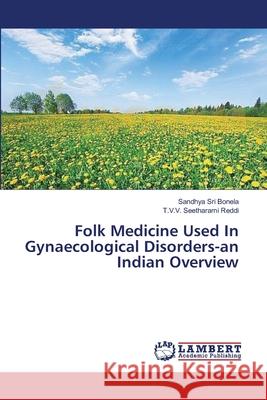Folk Medicine Used In Gynaecological Disorders-an Indian Overview » książka
Folk Medicine Used In Gynaecological Disorders-an Indian Overview
ISBN-13: 9783659396632 / Angielski / Miękka / 2013 / 176 str.
The survey of literature revealed that there are few studies on gynaecological disorders in different parts of India. Disorders that are peculiar to females are known as gynaecological disorders. The chief disorders are associated with menstruation that is amenorrhoea, dysmenorrhoea, menorrhagia, menopausal changes, leucorrhoea, diseases connected to pregnancy and childbirth, easy delivery, labour pains, post-partum problems, prolapse of the uterus and infertility, sterility, suppressed post-partum lactation and vaginal pruritus etc. The review reveals that a number of interesting claims and mode of their application either as a single plant species or in combination with some additives. Since ages herbs are being used as medicines as they are readily available, safe and cost-effective. The folk medicine of tribes is not only for virility and family planning, but they also use many species of plants for various ailments. Ethnomedicinal knowledge of inhabitants of an area on abortion, sexual fertility and female contraceptives, which is one of the important informal innovations used by them, is quite relevant to present day situation.
The survey of literature revealed that there are few studies on gynaecological disorders in different parts of India. Disorders that are peculiar to females are known as gynaecological disorders. The chief disorders are associated with menstruation that is amenorrhoea, dysmenorrhoea, menorrhagia, menopausal changes, leucorrhoea, diseases connected to pregnancy and childbirth, easy delivery, labour pains, post-partum problems, prolapse of the uterus and infertility, sterility, suppressed post-partum lactation and vaginal pruritus etc. The review reveals that a number of interesting claims and mode of their application either as a single plant species or in combination with some additives. Since ages herbs are being used as medicines as they are readily available, safe and cost-effective. The folk medicine of tribes is not only for virility and family planning, but they also use many species of plants for various ailments. Ethnomedicinal knowledge of inhabitants of an area on abortion, sexual fertility and female contraceptives, which is one of the important informal innovations used by them, is quite relevant to present day situation.











